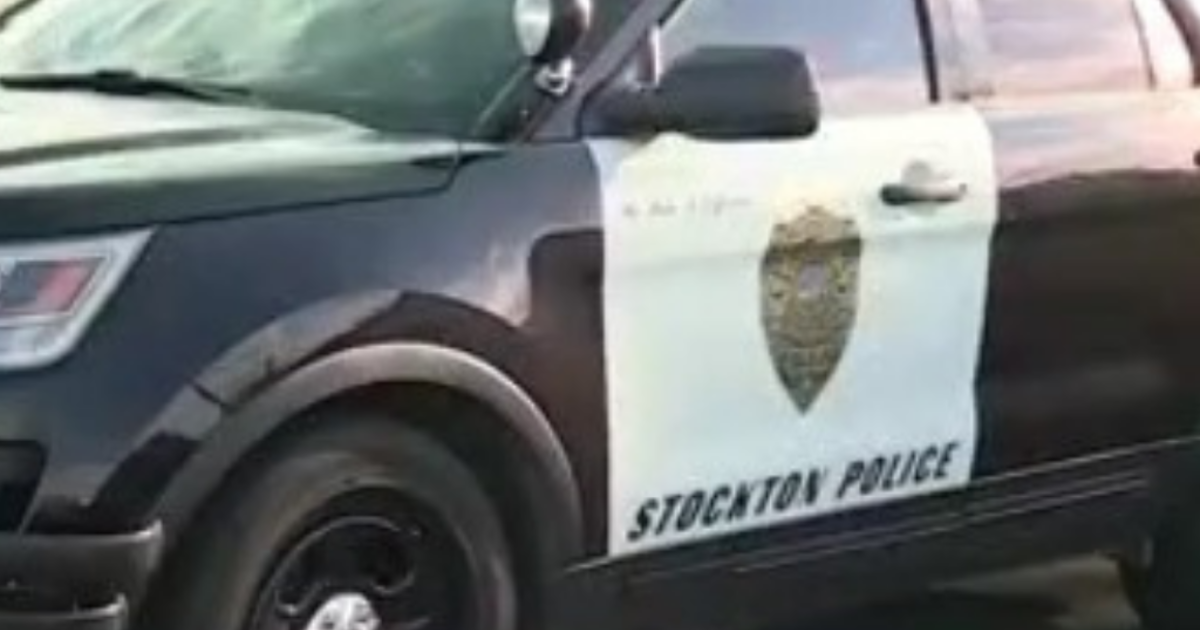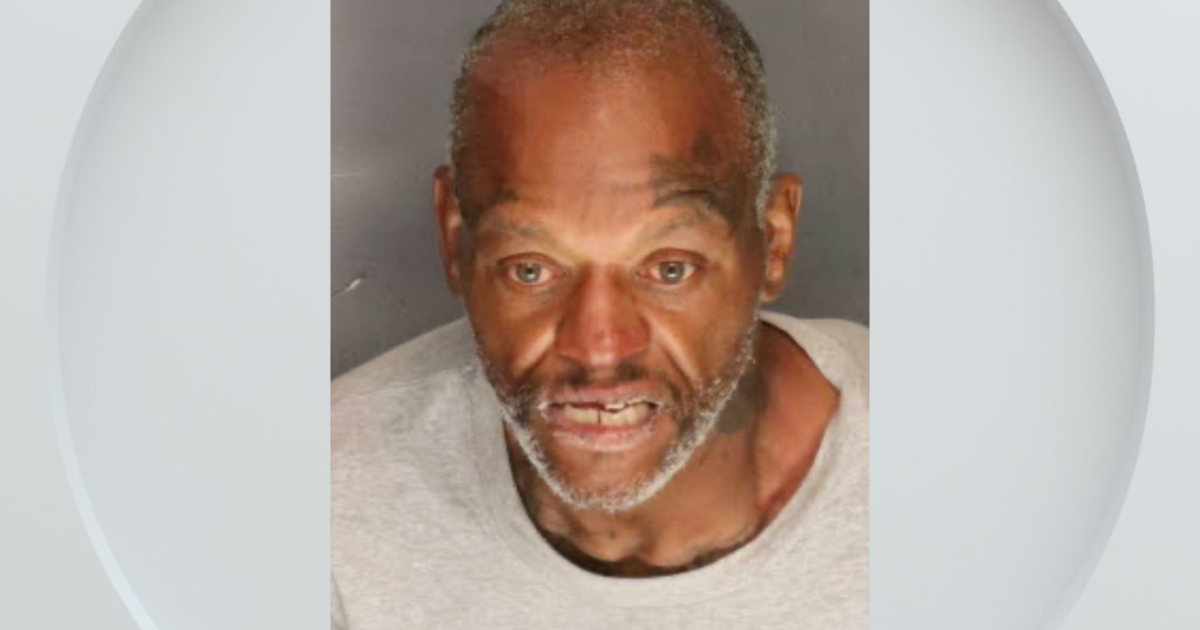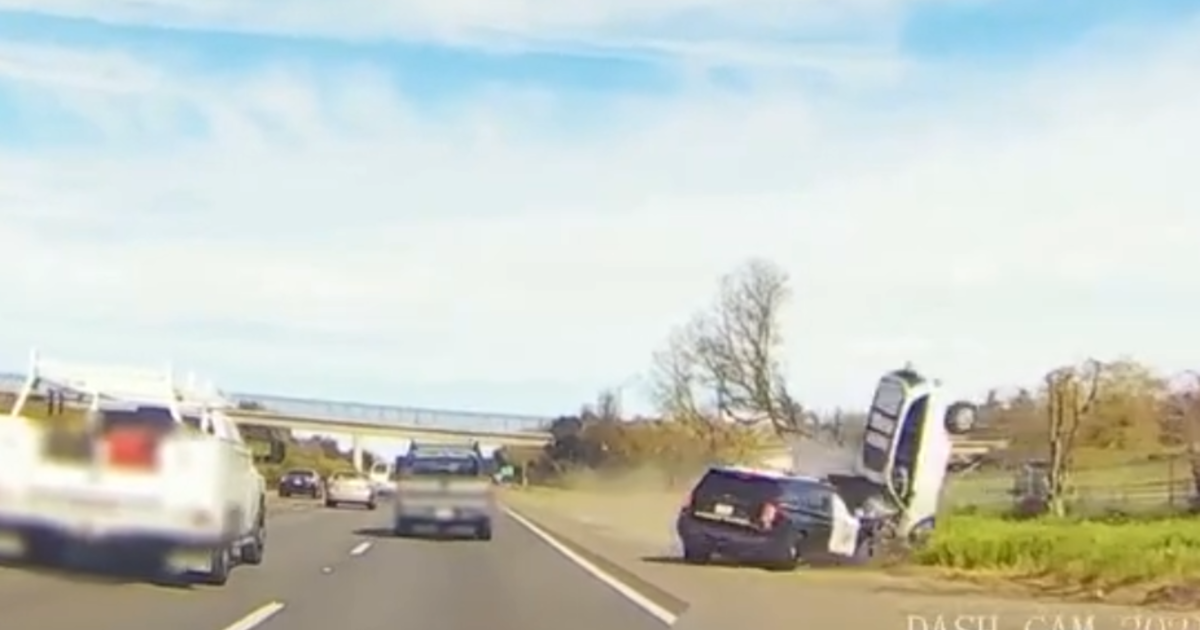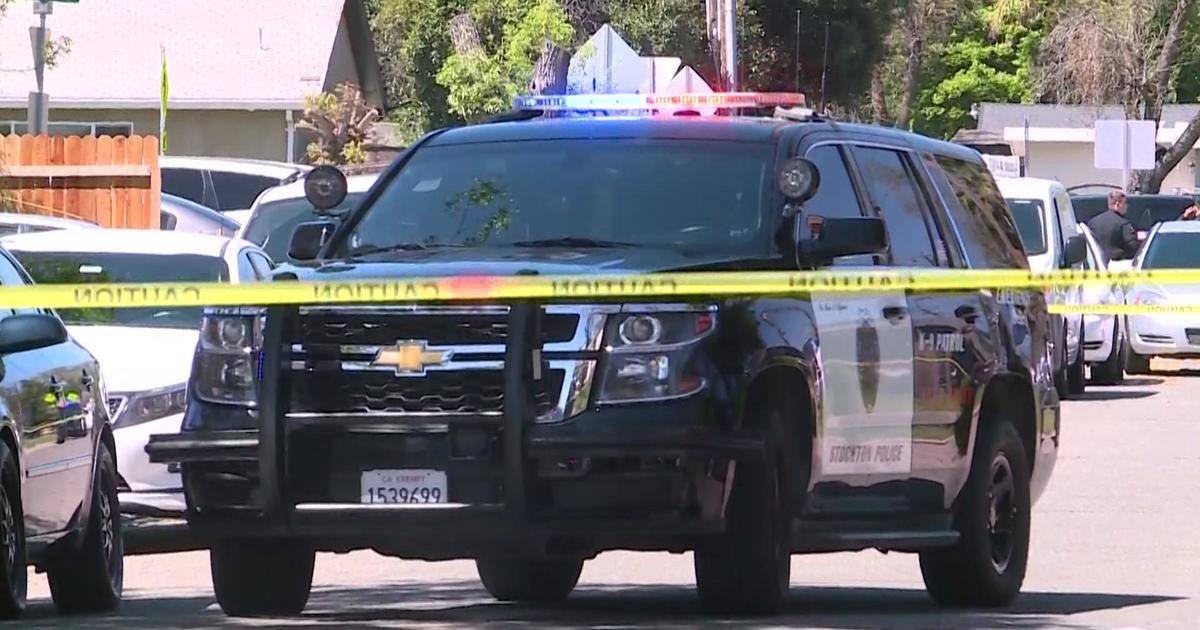7 Million People In Bay Area Wake Up To Empty Streets
SAN FRANCISCO (AP) - About 7 million people in the San Francisco Bay Area woke up Tuesday to nearly empty highways, shuttered stores and vacant streets after officials issued an order for residents to shelter at their homes and only leave for "essential" reasons in a desperate attempt to slow the spread of the coronavirus.
Miguel Aguirre, 38, his wife and two children were the only ones along a street near San Francisco's City Hall, an area normally bustling with office workers and commuters. Tuesday morning, only two coffee shops were open and empty.
Aguirre and his wife are janitors at the Boys and Girls Club and he said they heard on television of the shelter-in-place order but they decided to show up to work anyway because they need the money.
"It's really a scary situation for us because if we don't work, we don't eat," said Aguirre, who lives in Oakland and had to bring his daughters with him after schools were shuttered.
He said he already lost his job second job at the Hotel St. Francis where he worked in banquets, which dried up after tourism and conferences started plummeting a month ago.
"There been days when I want to cry but I have to keep going, this is a very difficult situation," Aguirre said.
He said his supervisor had just texted him that he needed to leave San Francisco and the family was closing the club to return home. "We're really scared because if we don't work we don't eat and we just bought a home three months ago," he said.
The measures are the strictest in America so far, mimicking orders in place across Europe and they raised new questions. What exactly is an essential need to leave home? What happens if you go out for a non-essential reason? What about salaries and income?
"No one is clear. No one has clarity as to what next steps are," said Oakland resident John McClinton. "And no one has a clear interpretation as to what's going to happen economically or the trickle-down effect that local businesses are experiencing because of this."
Under the order, supermarkets, pharmacies, banks and gas stations remain open, along with other essential government functions and businesses.
Restaurants will be open only for takeout.
All gyms and bars will have to close. Outdoor exercise is fine, as long as people practice "social distancing."
"You can still walk your dog or go on a hike with another person, as long as you keep 6 feet between you," said Dr. Grant Colfax, director of the San Francisco Department of Public Health.
It remained unclear if the rest of the state - and country - would follow California's lead. The nation's top infectious disease expert, Dr. Anthony Fauci, said over the weekend he would like to see aggressive measures such as a 14-day national shutdown that would require Americans to hunker down.
President Donald Trump said Monday he was currently not considering a nationwide lockdown.
The new order in California applies to about 7 million people. It includes the cities of San Francisco, Berkeley and Oakland.
Speaking in urgent language, officials said the unprecedented directive was based on data that showed a rapid escalation of cases that required quick, bold action. The order takes effect Tuesday and lasts until at least April 7.
"History will not forgive us for waiting an hour more," said San Jose Mayor Sam Liccardo, whose city is the epicenter of the area's outbreak. "This is our generation's great test, our moment to stand together as a community. Amid our collective fears, we will find our uncommon courage."
The dramatic changes have caused confusion and, despite official calls not to panic, no shortage of anxiety.
Across California, and the nation, the scene at supermarkets has been chaotic with lines forming before stores open in the morning with restocked shelves. Once open, shoppers jam the aisles and clear out the stock of toilet paper and other paper goods, canned beans, pasta and rice.
The shelter-in-place order set off a new rush. Shoppers in Berkeley flooded into the Berkeley Bowl grocery store. "I saw the headline and got this pit in my stomach," Caroline Park said as she put on plastic gloves before pushing a shopping cart into the store. "I was going to shop for the week anyway. I'm not here to hoard."
California's national and state parks remained open, but many shut indoor spaces, including visitor centers and museums.
The state has confirmed nearly 400 cases of the virus and seven deaths. The virus usually causes only mild or moderate symptoms, such as fever and cough, but can be deadly for older people and those with underlying health conditions.
The order came a day after Gov. Gavin Newsom told all residents ages 65 or older to stay at home and also called for all bars, wineries, nightclubs and brewpubs to close. Newsom upgraded the orders with more force on Monday.
In Los Angeles and San Diego counties - the state's largest, with a combined 13.4 million people - ordered bars to close and restaurants to stay open only for pickup, drive-thru or delivery orders.
San Francisco Police Chief William Scott said violating the order is technically a misdemeanor punishable by a fine or jail time but authorities will take a "compassionate, common-sense approach" to enforcement.
At San Francisco's infamous Alcatraz, the shutdown closed tours of the shuttered island prison until further notice. Tour guide Manuel Gomez, 49, who supports a wife and two children, said he hadn't yet come up with another plan to make money.
"It's devastating," Gomez said. "We only have enough savings to last us for 10 days."
Copyright 2020 The Associated Press.



